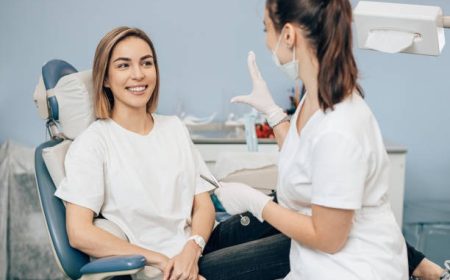When we think of our pets’ health, dental care often takes a back seat to more obvious concerns like diet, exercise, and regular vaccinations. However, oral health is a critical component of overall well-being for our furry friends. Just like humans, pets can suffer from a variety of dental problems that, if left untreated, can lead to serious health issues. So, what are the common veterinary dental problems you should watch out for?
1. Plaque and Tartar Build-Up
Just like in humans, plaque and tartar can accumulate on your pet’s teeth. Plaque is a sticky film composed mostly of bacteria, while tartar is the hardened form of plaque. Together, they’re responsible for a host of oral health issues.
-
Bad breath (halitosis)
-
Red and swollen gums (gingivitis)
-
Periodontal disease, which can lead to tooth loss
Regular home brushing and professional cleanings are essential to manage plaque and tartar.
2. Tooth Decay and Cavities
Although less common than in humans, pets can develop cavities—holes in the teeth that can grow larger and more painful over time. Cavities are more often seen in dogs than cats and can lead to toothache, infection, and even tooth loss.
3. Broken Teeth and Root Abscesses
Chewing on hard objects can lead to chipped or broken teeth in pets, which can cause pain and lead to infections. An infection at a tooth’s root can result in an abscess, which may present as swelling on the face or beneath the eye.
4. Gum Disease and Tooth Loss
Gum disease, or periodontal disease, is the most common clinical condition occurring in adult dogs and cats, and it’s completely preventable. Gum disease can lead to tooth loss and has been linked to other serious health complications, including heart disease.
Understanding these common issues is the first step in preventing them. Incorporating daily dental care into your pet’s routine and scheduling regular check-ups with your vet can mitigate these risks significantly.
Advanced Dental Issues and Treatments
Sometimes, pets will develop dental issues that require advanced care and treatments:
-
Major oral surgery for tumors or severe periodontal disease: When dealing with cases that involve surgery for tumors or severe periodontal disease, it is imperative to enlist the expertise of a skilled veterinary surgeon. These specialists have the proper training and experience to handle complex procedures, ensuring the best possible outcomes for our animal patients.
-
Orthodontics to correct bite issues: Orthodontics in veterinary medicine involves using specialized dental appliances to correct bite issues in animals. A veterinary surgeon with orthodontic experience can realign teeth, remedying malocclusions that may cause pain or difficulty eating, ultimately improving the animal’s overall oral health and functionality.
-
Endodontic treatments to address diseased teeth: Endodontic treatments, performed by an animal surgeon with expertise in dental care, involve addressing diseased teeth, often through root canals. This procedure removes infected pulp and seals the tooth, relieving pain, preventing the spread of infection, and preserving the tooth’s function.
Warning Signs of Dental Problems in Pets
Watch for these common symptoms that could indicate dental problems in your furry companion:
-
Bad breath
-
Difficulty eating or change in eating habits
-
Red or bleeding gums
-
Pawing at the mouth or face
Any of these signs warrant a visit to your veterinarian for a dental check-up. Comprehensive pet dental care is vital for their well-being, and it starts with a knowledgeable vet. Expert veterinarians offer extensive services, including routine cleanings, root canals, and extractions to address various dental issues. Ensure your pet’s oral health is in good hands; schedule a visit with a professional skilled in veterinary dental services today.
Professional Dental Care
Proper dental hygiene requires professional cleanings by a vet to remove hard-to-reach plaque and tartar. Simultaneously, vaccinations safeguard your pets from diseases. Tailored vaccine schedules based on lifestyle are key, and vets can provide comprehensive health evaluations, including dental assessments. For more on vaccinations and parasite prevention, check websites like https://www.boundbrookvet.com/site/veterinary-services-middlesex/cat-dog-vaccinations-parasite-prevention.
At-Home Vet Dental Care Tips
Maintaining your pet’s dental health at home is possible with a few simple practices:
-
Brush your pet’s teeth daily with toothpaste formulated for pets.
-
Provide dental chews and toys designed to reduce plaque and massage the gums.
-
Use dental diets and treats approved by the Veterinary Oral Health Council (VOHC).
-
Inspect your pet’s mouth regularly for signs of dental issues.
Final Thoughts
Being proactive and informed about your pet’s dental care is vital for their overall health and happiness. Establish a daily dental care routine at home, stay vigilant for any changes in their oral health, and ensure you schedule regular veterinary check-ups. Pay attention to the importance of professional cleaning to maintain your pet’s dental wellness. For optimum protection against diseases, discuss vaccination schedules with your vet. Want to learn more? Act now to keep your beloved pet thriving and healthy.





